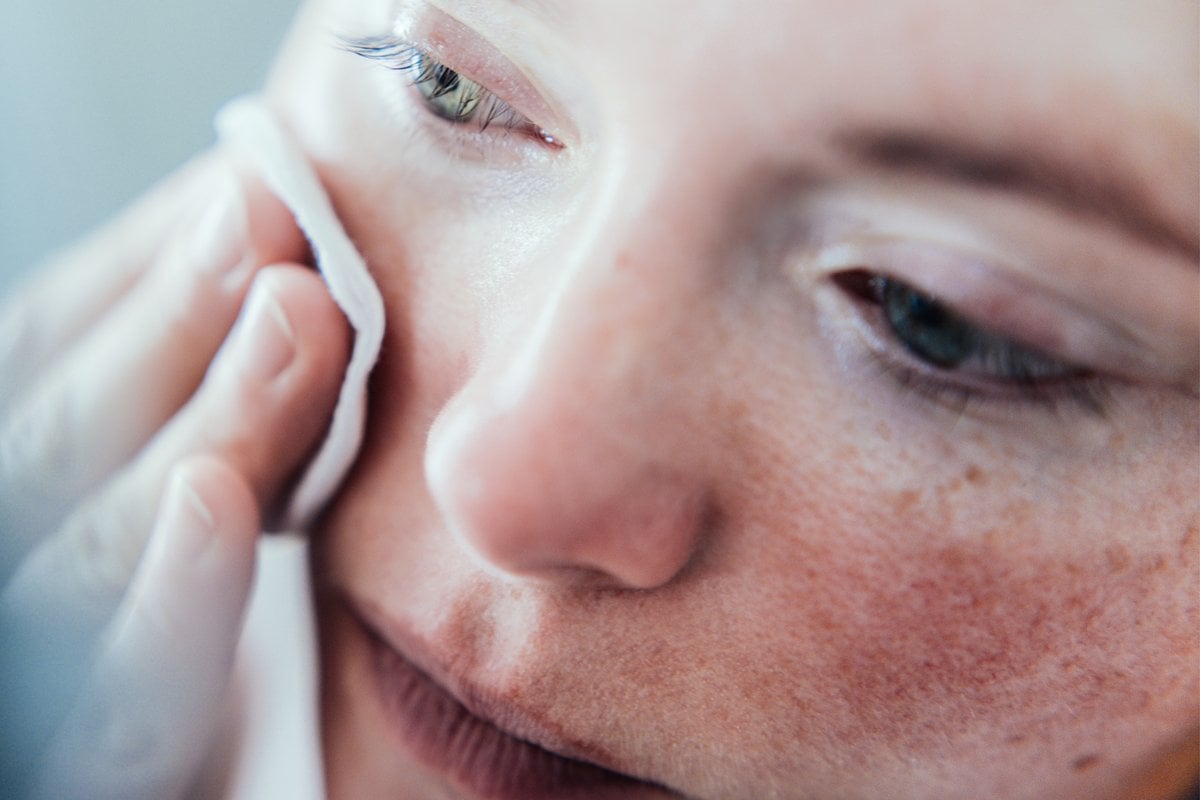
If you're a lass with sensitive skin, you know how frustrating it can be. There's so many cool products kicking around the beauty streets these days (the brands! The packaging! The potential shelfies!), yet your skin literally s**ts itself if you even so much as whisper the words 'new product'.
It sucks.
Watch: Just on the topic of skin, here's 7 ways to improve yours while sleeping. Post continues below.
Knowing where to start in protecting your sensitive skin from redness, irritation and flaking (yum!) can be intimidating.
You end up aimlessly flailing around the non-flail-safe aisles of Chemist Warehouse, feeling like you need a science degree to be able to figure out what won't irritate your skin.
Listen: Leigh takes us on the road to recovery and shows us how using too many actives can lead to a chemical burn. Post continues below.
So, to take the guesswork out for you, we hit up dermatologist Dr Katherine Armour from Bespoke Skin Technology and asked her what folk with sensitive skin should avoid at all costs.


